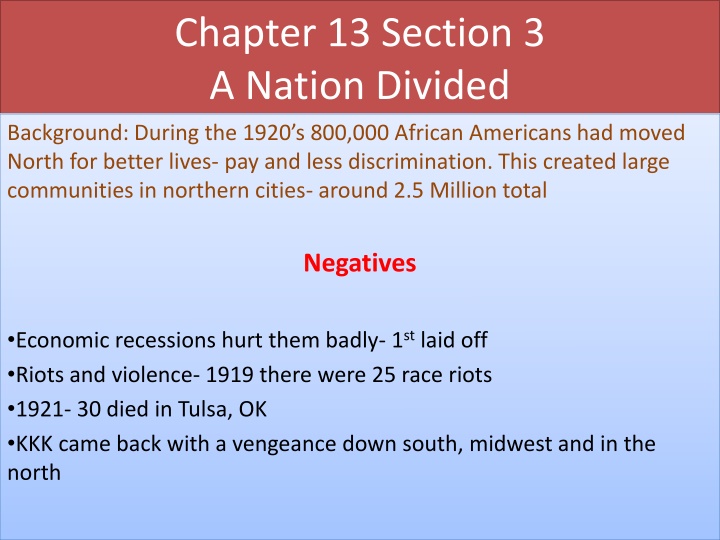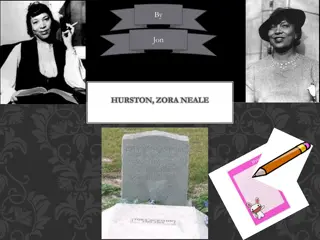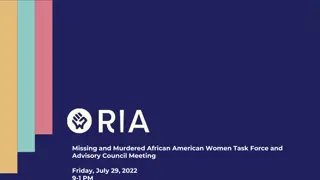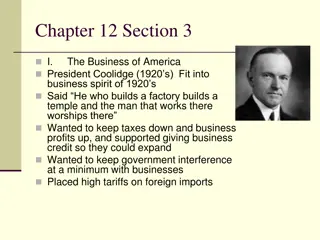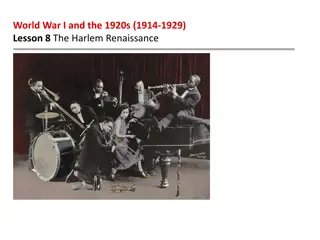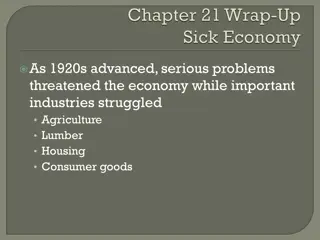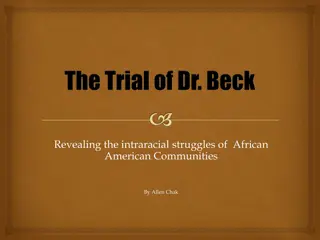Turbulence and Triumph: African American Struggles in the 1920s
In the 1920s, African Americans faced a tumultuous period of migration, economic challenges, racial violence, and the rise of the Ku Klux Klan. Despite adversities, leaders like Marcus Garvey, NAACP, and A. Philip Randolph emerged to defend their rights and promote black unity. The era also witnessed the enforcement of strict immigration restrictions aimed at curbing the influx of immigrants into the United States.
Download Presentation

Please find below an Image/Link to download the presentation.
The content on the website is provided AS IS for your information and personal use only. It may not be sold, licensed, or shared on other websites without obtaining consent from the author.If you encounter any issues during the download, it is possible that the publisher has removed the file from their server.
You are allowed to download the files provided on this website for personal or commercial use, subject to the condition that they are used lawfully. All files are the property of their respective owners.
The content on the website is provided AS IS for your information and personal use only. It may not be sold, licensed, or shared on other websites without obtaining consent from the author.
E N D
Presentation Transcript
Chapter 13 Section 3 A Nation Divided Background: During the 1920 s 800,000 African Americans had moved North for better lives- pay and less discrimination. This created large communities in northern cities- around 2.5 Million total Negatives Economic recessions hurt them badly- 1stlaid off Riots and violence- 1919 there were 25 race riots 1921- 30 died in Tulsa, OK KKK came back with a vengeance down south, midwest and in the north
KKK Rise and Fall William Joseph Simmons re-established the Klan in 1915 at Stone Mountain, Georgia Klan targets were not only African Americans but Catholics, Jewish people, immigrants and radicals The Red Scare boosted membership to a high of 4 to 5 million Decreased Red Scare hysteria, bad publicity, corruption and the conviction of David Stephenson for 2nddegree murder cut the Klan s numbers down to 9,000 by 1930
Random Marcus Garvey Information Marcus Garvey had a profound effect on the black movement in his time and in the future. He was one of the first to use the term black pride and black is beautiful and he sold stock in the Black Star Steamship Company. He was very popular with the lower and middle class blacks. Many African Americans like WEB DuBois agreed with some of his program but felt that African Americans should fight for their rights in the US.
African Americans Defend Their Rights NAACP was formed to end lynching through legislation and pressure on local police to investigate A. Philip Randolph formed the Brotherhood of Sleeping Car Porters to raise wages, working conditions and better hours Marcus Garvey tried to establish a Pan-Africanism movement to unite all black people in the world in their common cause. Marcus was also at the forefront of the black nationalism movement to create a homeland in Africa. Furthermore Marcus founded the Universal Negro Improvement Association which had two goals: economic independence through black owned businesses and an independent black home land in Africa
Immigration Restrictions Many Americans felt that the US was being overrun by immigrants. This was one reason for the Klan s increased membership. Nativism- believe that people from other countries were harmful to our country- was on the rise and the politicians enacted laws to keep the wrong kind of people from being able to immigrate Immigration Laws 1. 1921: Immigration was limited to 3% of who was here in 1910 2. The Immigration Act of 1924: Reduced the quota to 2% of who was here in 1890- excluded all Asian immigrants 3. 1925: New immigrants from Africa, Asia, Australia and Europe was limited to 153,000
Mexican American Migration Mexican Americans were exempt from the immigration legislation. Employers in the Southwest were happy to have a ready supply of low wage laborers Mexican Americans were eager to come work in the US to escape poverty, job scarcity and political upheaval- 500,000 Often times the work conditions were horrible Mexican Americans began to move to cities and this caused social conflict because many of the children began to assimilate into anglo culture
American Indian Life Native Americans were trying to overcome the disastrous effects of the Dawes Act which broke up reservations 1922: Pueblo tribes (SW) successfully organized to fight the Bursum Bill that was an attempt to legalize non-Indian claims to Pueblo land. Solid support came from Women s groups and anthropoligists 1924: Congress granted citizenship to all American Indians- partly in recognition to their service in WW1 Widespread poverty still remained a problem
